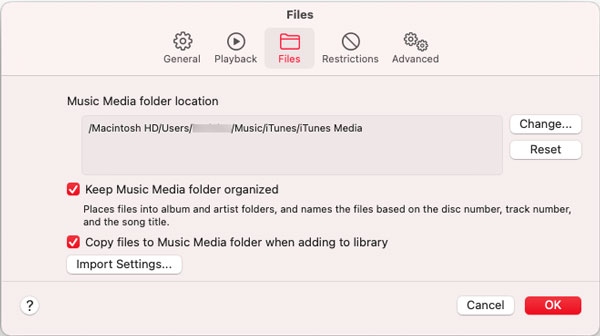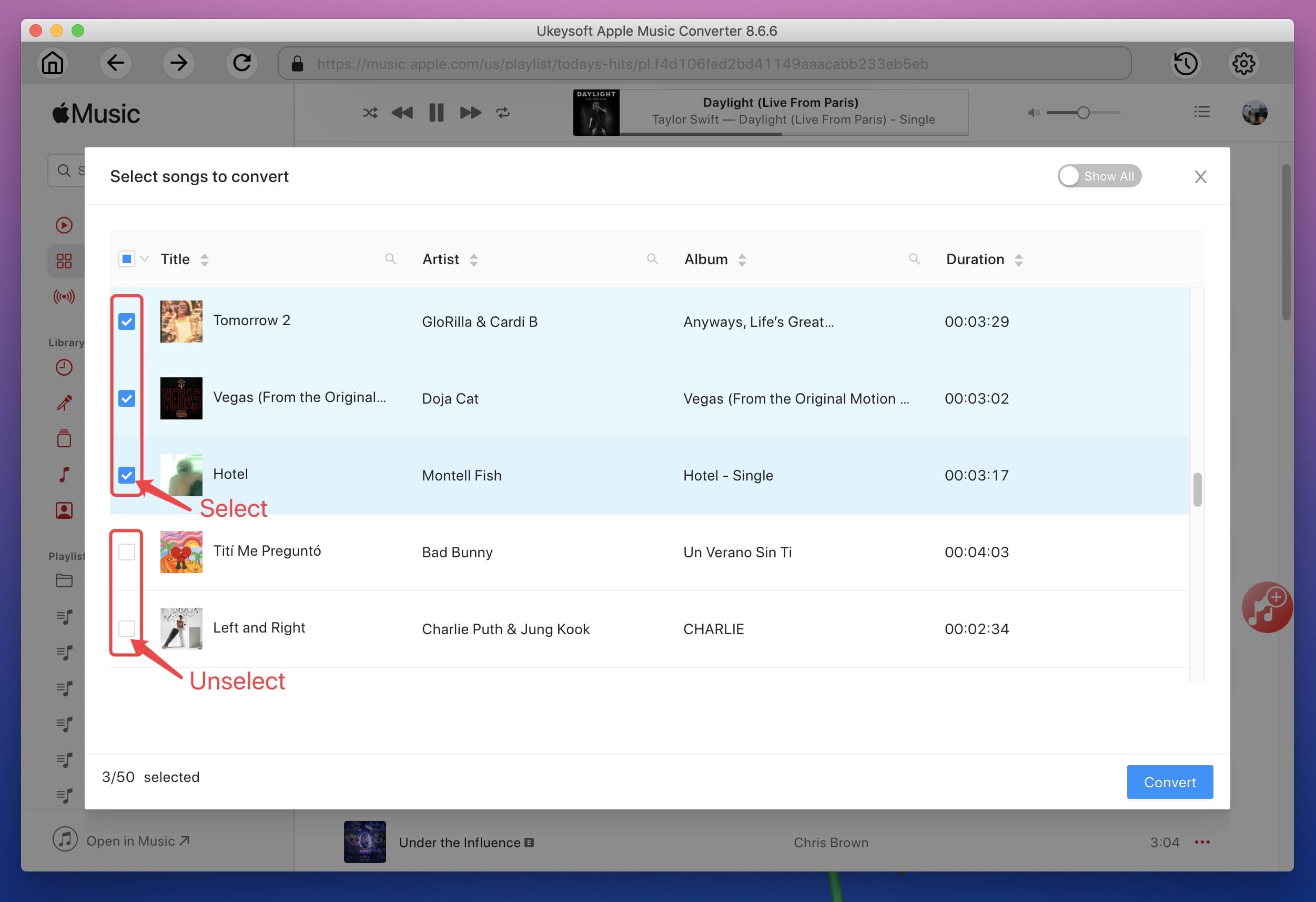

- CHANGE AAC FILE TO MP3 IN ITUNES MAC OS X
- CHANGE AAC FILE TO MP3 IN ITUNES CODE
- CHANGE AAC FILE TO MP3 IN ITUNES DOWNLOAD
- CHANGE AAC FILE TO MP3 IN ITUNES MAC
CHANGE AAC FILE TO MP3 IN ITUNES MAC
My Power Mac G5 Quad is equipped with 8 GB of RAM while my Power Mac G5 Dual has only 2.5 GB of RAM installed. The amount of RAM didn’t seem to have much of an impact, so you needn’t worry about more or less RAM being a factor. If you are using a faster or a slower machine, your results will vary accordingly.

Doing the math, this is about six seconds per song. In round numbers, it took about a minute per album, with each album comprised of on average ten songs.
CHANGE AAC FILE TO MP3 IN ITUNES CODE
Regrettably, the iTunes 9.2.1 conversion code does not appear to be multi-threaded, and so the operation took close to the same amount of time on each machine. An hour or so later it was done, and all of my M4A tunes now had an MP3 counterpart.Īs a test, I did this twice, once on my 2.5 GHz Power Mac G5 Quad and again on my 2.3 GHz Power Mac G5 Dual, just to see if the G5 Quad would outperform the G5 Dual at this CPU intensive task. “Create MP3 Version” appeared in the resulting context menu, and I selected it. I then selected the complete set of AAC-encoded tunes and right clicked the whole selection. Now I had a list of all my tunes, with the AAC-encoded tunes all grouped together at the top, followed by all the MP3-encoded tunes, and then finally a small number of other kinds as well, such as M4P, WAV and so on. Next I added a column to the list view for “Kind”, which showed the “kind” of encoding for each tune, either MP3 or AAC.įinally, I clicked on the Kind header to sort all of the list view tunes into “kind” order. In the iTunes View options (available from the main iTunes menu bar), placing iTunes into “List” view showed all of the tunes in a list, vs. If, however, the MP3 encoder was selected in the Import Settings, that same convert option then changed to “Create MP3 Version”!Īll I had to do now was to get iTunes to bulk convert all of the M4A tunes to MP3 format in this way. If, in the Import Settings preferences, the AAC (M4A) encoder was selected, the per tune right click convert option was to convert to M4A. Playing with iTunes preferences, I quickly realized that the convert option was context sensitive. Regrettably, whenever I right clicked a tune in the iTunes 9.2.1 on my Tiger-based Power Mac G5, the only “convert” option I got was to create an AAC (M4A) version – not exactly the MP3 option I was looking for! If iTunes could convert a single tune, then perhaps it could convert an entire collection of tunes. Then the lights came on in my mind and I realized that I had had the answer under my nose all along: iTunes! I recalled seeing a “Create MP3 Version” context command in iTunes, available by right clicking any given tune.

I investigated numerous AAC to MP3 tools, including various forms of Sox (both command line and GUI based), the excellent Audacity program, and some wonderfully multi-threated general purpose conversion tools, one or two of which could indeed be scripted.
CHANGE AAC FILE TO MP3 IN ITUNES MAC OS X
Many readers will shudder at the words “command line based”, but yes, I am old enough, and geeky enough, to be fully versed in command line usage, having long experience with DOS initially, and then with various flavors of Unix and finally with various flavors of Linux, all of which set me up beautifully to use the Mac OS X Terminal command line.
:max_bytes(150000):strip_icc()/003_convert-aac-to-mp3-itunes-1999257-f8d30eeed3bf48ec8db07a19bddcd477.jpg)
I was not averse to an album-by-album approach if it was command line based and I could script it, achieving a single script operation, but in one way or the other, the conversion had to occur in an automatic way, searching out all M4A files and converting them to MP3 with no intervention on my behalf. album by album, which would have been prohibitively difficult from a time and personal patience perspective. I had to be able to point the solution at my entire iTunes library, and have it find and process all the M4A files there into MP3 files in a single GUI or command line step, vs.
CHANGE AAC FILE TO MP3 IN ITUNES DOWNLOAD
Since this significantly limited what I could download to my first generation iPod (about half my iTunes library is AAC formatted), I set out to solve this problem. In my earlier post on moving a modern iTunes 12.x library back to iTunes 2.0.4 (on Mac OS 9.2.2), I noted that a key issue I encountered in that process was that iTunes 2.0.4 supported only the MP3 format, and that none of my AAC (M4A) formatted music was able to make the transition from the modern iTunes 12.x to the vintage iTunes 2.0.4.


 0 kommentar(er)
0 kommentar(er)
